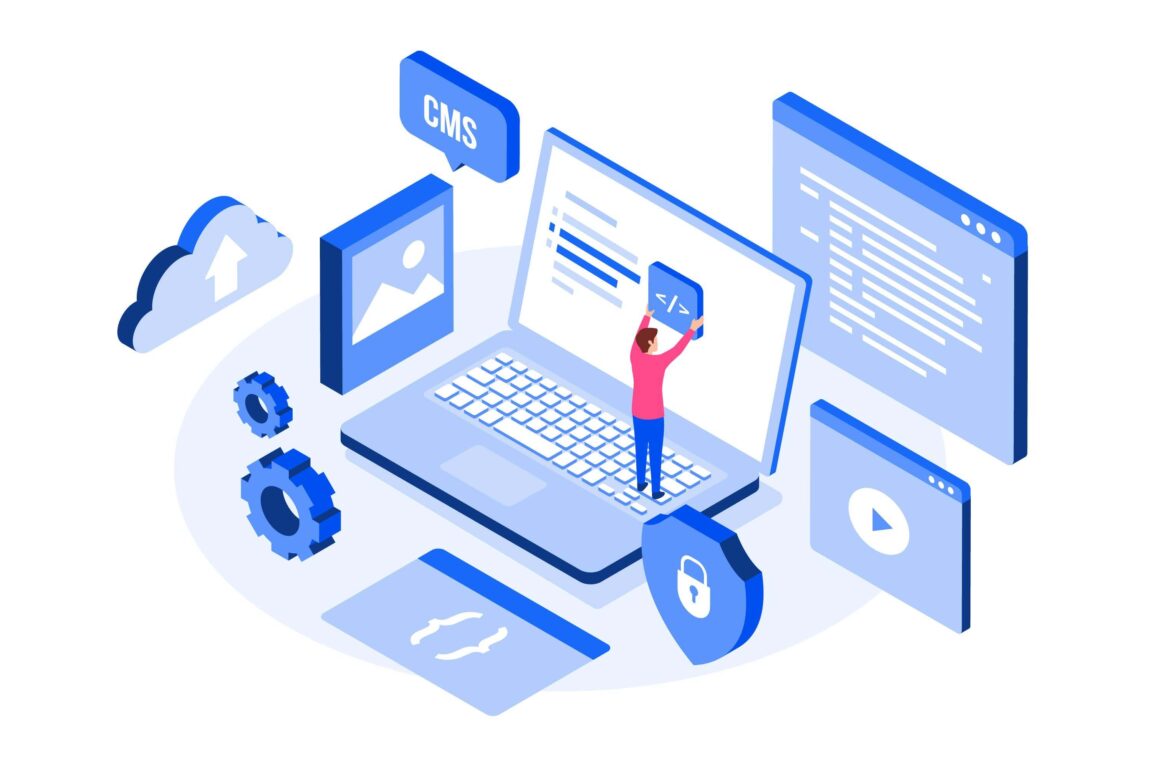Software development is an ever-evolving field that has witnessed remarkable advancements over the years. With the rapid growth of technology and the increasing demands of the digital age, software development continues to play a crucial role in shaping our world. In this blog, we will explore the latest trends in software development and how they are revolutionizing the industry.
-
Artificial Intelligence and Machine Learning
Artificial Intelligence (AI) and Machine Learning (ML) have become integral parts of software development. AI-powered applications and ML algorithms have the ability to analyze vast amounts of data, automate tasks, and make accurate predictions. With the advent of AI and ML, developers can create intelligent software that can learn from user behavior, adapt to changing circumstances, and provide personalized experiences.
-
Low-Code and No-Code Development
These platforms enable developers to build applications with minimal coding knowledge. Low-code platforms provide visual interfaces and pre-built components, allowing developers to drag and drop elements to create applications quickly. No-code platforms, on the other hand, empower non-technical users to build applications without writing a single line of code. This trend has democratized software development, making it more accessible to a wider audience.
-
DevOps and Continuous Integration/Continuous Deployment (CI/CD)
DevOps practices have transformed the way software is developed, deployed, and managed. Continuous Integration/Continuous Deployment (CI/CD) pipelines automate the software delivery process, ensuring that changes are tested, integrated, and deployed seamlessly. DevOps and CI/CD have become essential for organizations aiming to improve software quality, speed up release cycles, and enhance customer satisfaction.
-
Internet of Things (IoT)
The Internet of Things (IoT) has gained immense traction in recent years. IoT refers to the network of interconnected physical devices, vehicles, and appliances that can communicate with each other and exchange data. Software developers are now focusing on building applications that can interact with IoT devices, enabling seamless integration between the physical and digital worlds. IoT opens up new possibilities for innovative applications in various domains, including smart homes, healthcare, transportation, and industrial automation.
-
Cloud Computing
Cloud computing has revolutionized the way software is developed, deployed, and hosted. Cloud platforms offer scalable and flexible infrastructure, enabling developers to build and run applications without the need for extensive hardware investments. With cloud computing, software developers can take advantage of services like Infrastructure as a Service (IaaS), Platform as a Service (PaaS), and Software as a Service (SaaS). Cloud-based development environments also facilitate collaboration and provide developers with the flexibility to work from anywhere, making software development more agile and efficient.
-
Cybersecurity
As technology advances, cybersecurity has become a critical concern for software developers. With the increasing number of cyber threats, developers need to focus on building secure and robust software systems. Incorporating security measures throughout the software development lifecycle is crucial to protect sensitive data, prevent unauthorized access, and ensure compliance with privacy regulations. Developers are adopting practices such as secure coding, penetration testing, and regular security audits to safeguard software applications from potential vulnerabilities.
-
Microservices Architecture
Microservices architecture is gaining popularity as an approach to building complex software applications. Instead of a monolithic architecture where the entire application is tightly coupled, microservices architecture breaks the application into smaller, loosely coupled services that can be developed, deployed, and scaled independently. This allows for greater flexibility, scalability, and easier maintenance of the application. Each microservice can be developed using a different programming language or technology stack, enabling teams to choose the most suitable tools for each service.
-
Progressive Web Applications (PWAs)
Progressive Web Applications (PWAs) have become a game-changer in the world of software development. PWAs are web applications that provide a native-like experience on any device, including mobile devices. PWAs eliminate the need for separate development for different platforms, reducing development and maintenance costs while offering a consistent user experience across devices.
-
Agile and Lean Development
Agile and lean development methodologies continue to dominate the software development industry. Agile methodologies, such as Scrum and Kanban, promote iterative development, collaboration, and adaptive planning. These methodologies enable developers to respond quickly to changing requirements, deliver software incrementally, and gather feedback from users throughout the development process. Lean development focuses on eliminating waste and maximizing value for the end-user. Both Agile and Lean methodologies emphasize continuous improvement and customer-centricity.
-
Virtual and Augmented Reality (VR/AR)
Virtual Reality (VR) and Augmented Reality (AR) technologies are expanding the horizons of software development. These technologies have found applications in various fields, including gaming, training, education, healthcare, and architecture. Software developers are exploring ways to create immersive experiences and innovative applications using VR/AR, enhancing user engagement and interaction.
-
Quantum Computing
Although still in its early stages, quantum computing has the potential to revolutionize software development. Software developers are exploring the possibilities of quantum computing for solving computationally intensive problems, optimizing algorithms, and improving encryption techniques. As quantum computing continues to advance, it will open up new avenues for solving complex problems and developing cutting-edge applications.
-
Blockchain Technology
Blockchain technology has gained significant attention beyond its association with cryptocurrencies. With its decentralized and immutable nature, blockchain offers secure and transparent solutions for various industries. Software developers are utilizing blockchain for applications such as supply chain management, financial transactions, identity verification, and decentralized applications (DApps). Blockchain’s ability to ensure trust and eliminate intermediaries is transforming traditional business processes and opening up opportunities for innovative software solutions.
-
Conclusion
The field of software development is constantly evolving, driven by technological advancements and changing user expectations. From AI and ML to low-code development, cloud computing, and cybersecurity, software developers need to stay updated with the latest trends to remain competitive and deliver high-quality applications. Embracing these trends enables organizations to streamline development processes, enhance user experiences, and stay ahead in the dynamic world of software development. By harnessing the power of emerging technologies and adopting agile methodologies, software developers can shape the future and drive innovation in the industry.
This post was created with our nice and easy submission form. Create your post!







Comments
0 comments